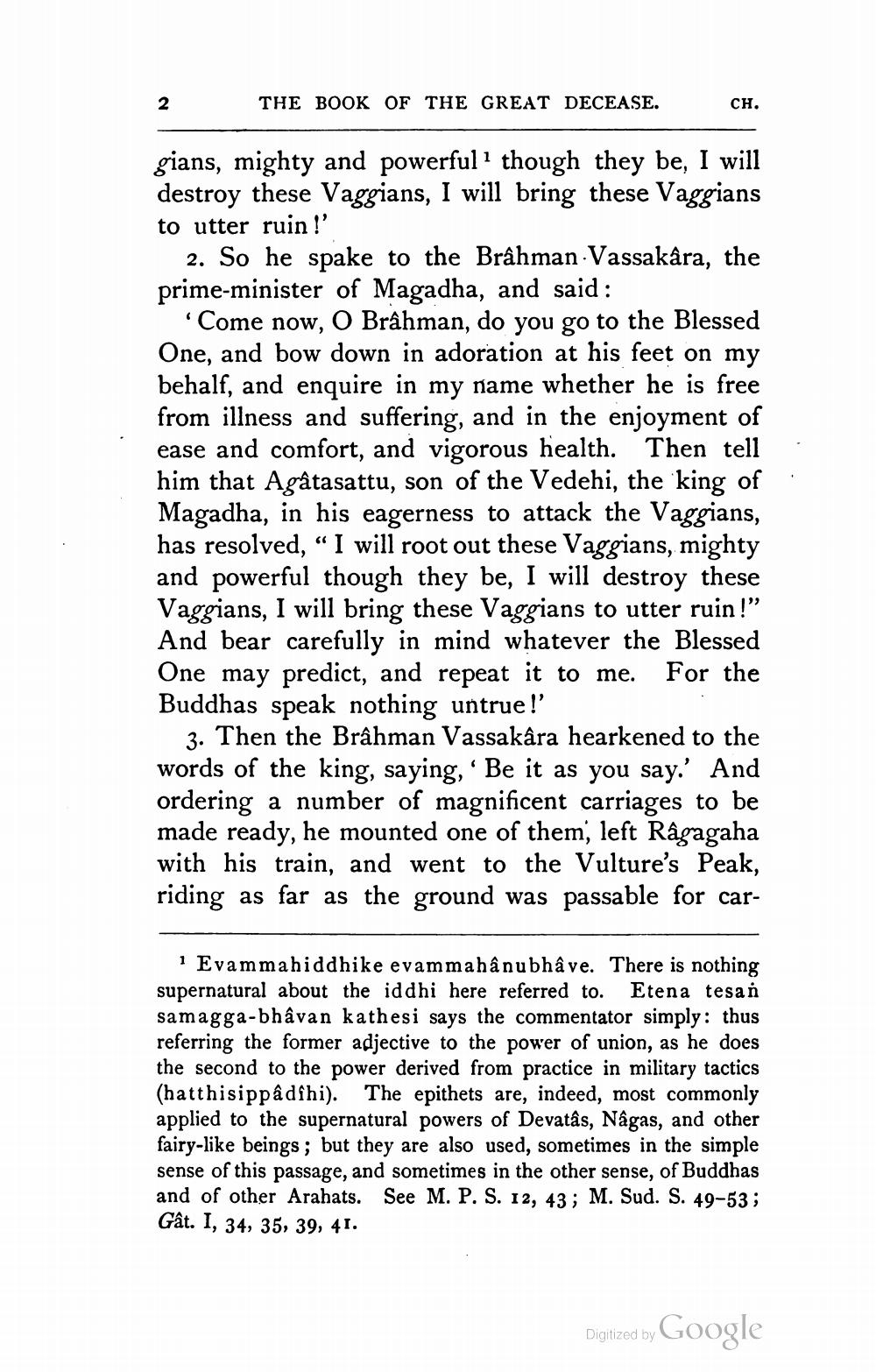________________
THE BOOK OF THE GREAT DECEASE.
CH.
gians, mighty and powerful though they be, I will destroy these Vaggians, I will bring these Vaggians to utter ruin!'
2. So he spake to the Brâhman Vassakâra, the prime-minister of Magadha, and said:
Come now, O Brâhman, do you go to the Blessed One, and bow down in adoration at his feet on my behalf, and enquire in my name whether he is free from illness and suffering, and in the enjoyment of ease and comfort, and vigorous health. Then tell . him that Agâtasattu, son of the Vedehi, the king of: Magadha, in his eagerness to attack the Vaggians, has resolved, “I will root out these Vaggians, mighty and powerful though they be, I will destroy these Vaggians, I will bring these Vaggians to utter ruin!” And bear carefully in mind whatever the Blessed One may predict, and repeat it to me. For the Buddhas speak nothing untrue!'
3. Then the Brâhman Vassakâra hearkened to the words of the king, saying, 'Be it as you say.' And ordering a number of magnificent carriages to be made ready, he mounted one of them, left Râgagaha with his train, and went to the Vulture's Peak, riding as far as the ground was passable for car
1 Evammahiddhike evammahanubhave. There is nothing supernatural about the iddhi here referred to. Etena tesan samagga-bhâvan kathesi says the commentator simply: thus referring the former adjective to the power of union, as he does the second to the power derived from practice in military tactics (hatthisippâdihi). The epithets are, indeed, most commonly applied to the supernatural powers of Devatas, Nagas, and other fairy-like beings; but they are also used, sometimes in the simple sense of this passage, and sometimes in the other sense, of Buddhas and of other Arahats. See M. P. S. 12, 43; M. Sud. S. 49-53; Gât. I, 34, 35, 39, 41.
Digitized by
Digitized by Google




